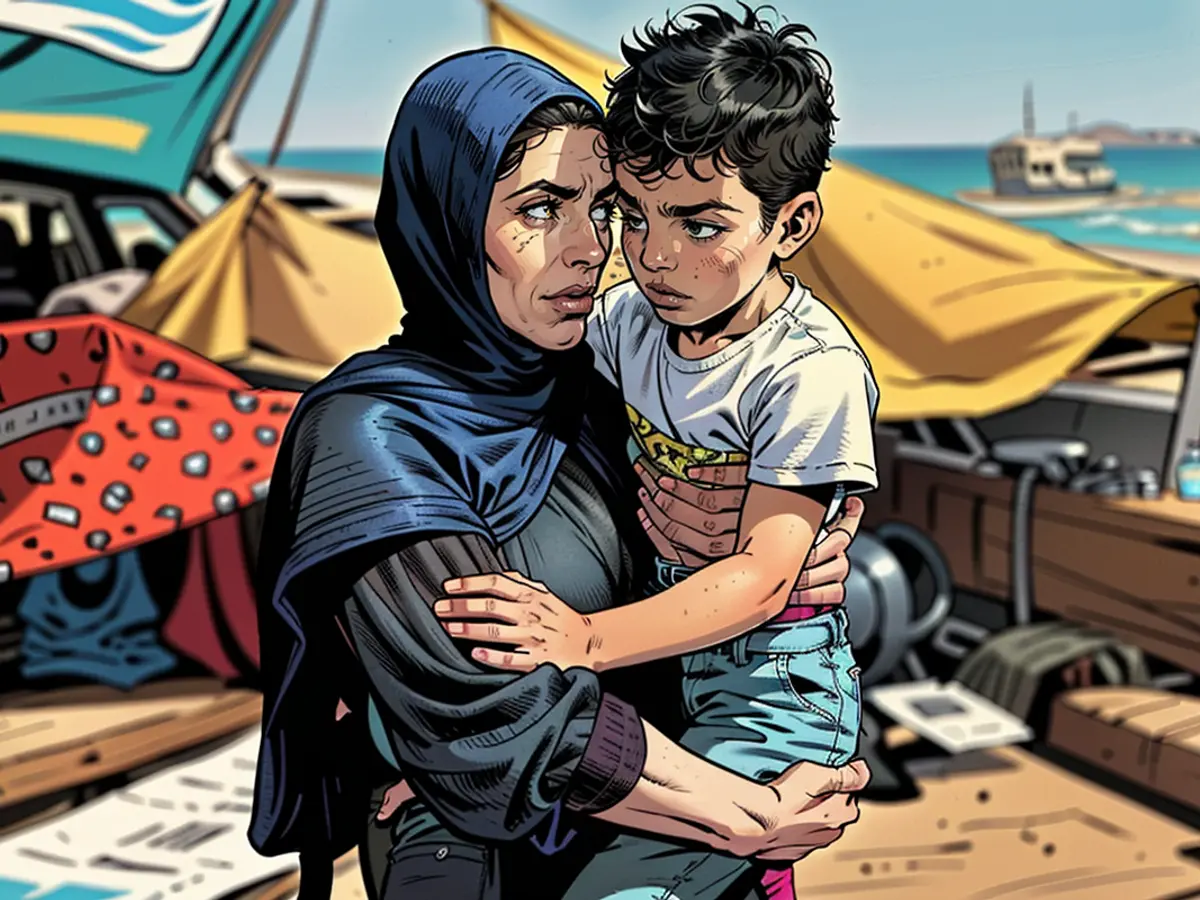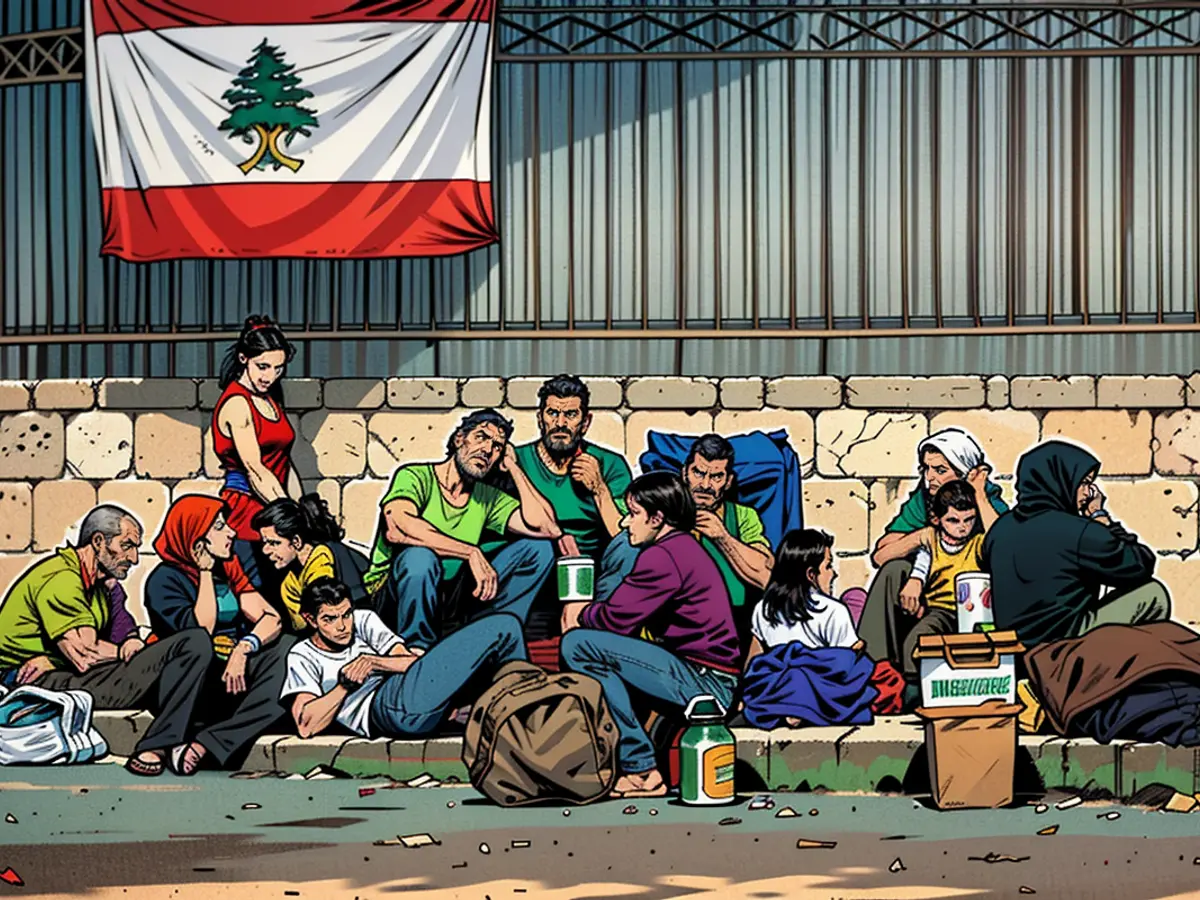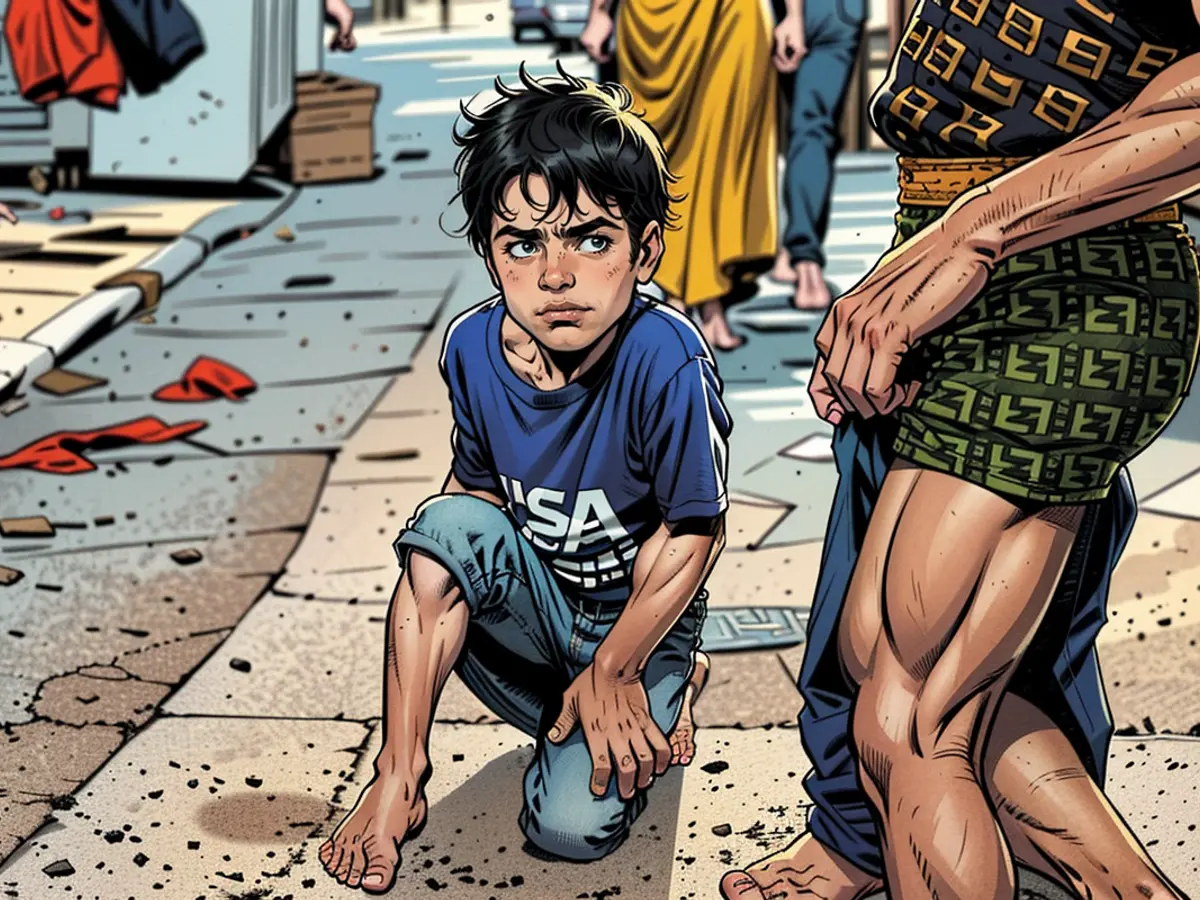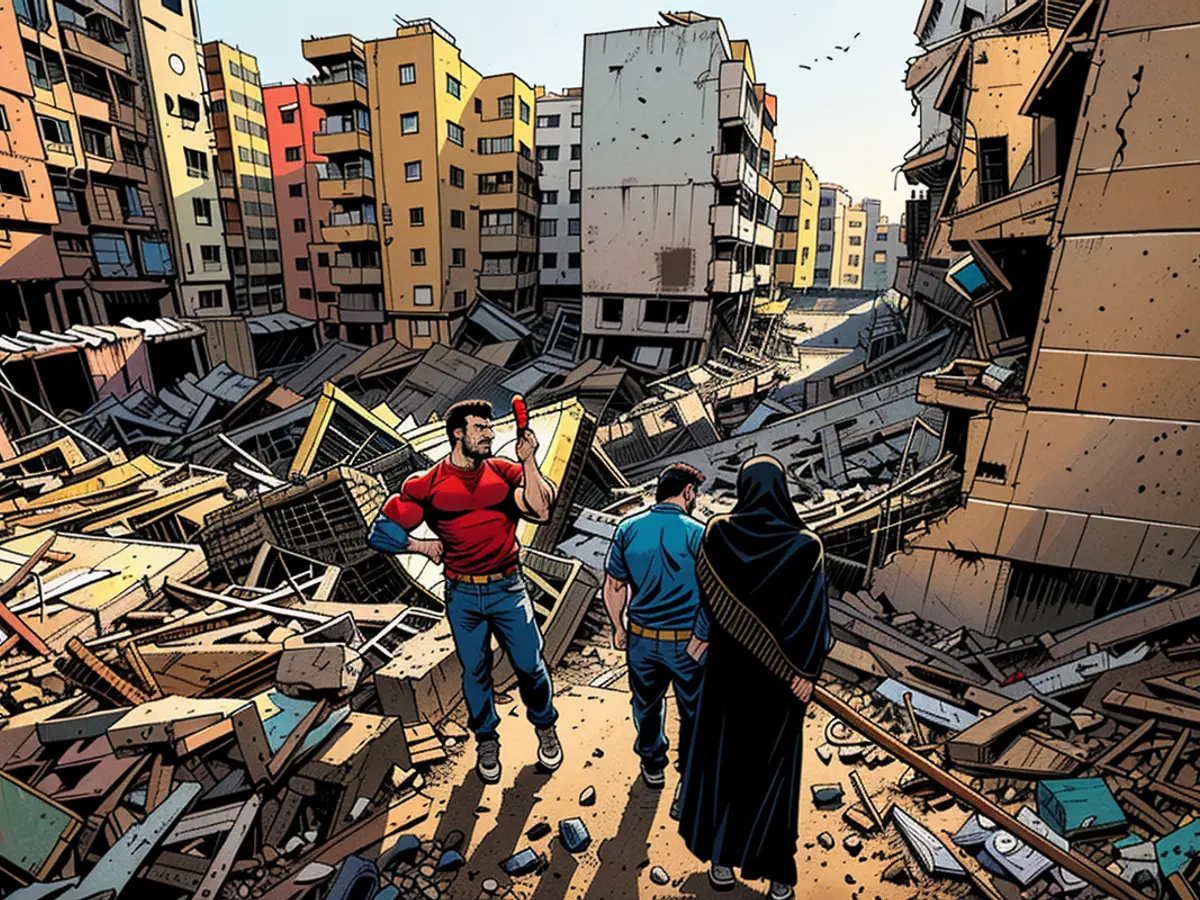Widespread Destruction in Lebanon's Streets Following Days of Israeli Aerial Assaults
The pro-Iranian group's leader Hassan Nasrallah was supposedly eliminated on Friday in a series of intense bombings, marking the start of almost 48 hours of relentless airstrikes. A multitude of high-ranking commanders and officials met their end alongside Nasrallah, along with several civilians.
More than 24 hours after Nasrallah's body was reportedly found in a crater created by the explosions, there hasn't been any announcement regarding his funeral – an unfamiliar occasion in Islamic tradition that usually calls for a prompt burial.
Moreover, the group has yet to appoint a new secretary general, breaking traditions and expectations that they would swiftly share details of their succession plan following Nasrallah's demise.
This situation has led many to suspect that the Lebanese Shia militant group, Hezbollah, which had significantly influenced Lebanon's political landscape for decades, has essentially ceased to exist. The Israeli strikes reportedly targeted not only the group's top leadership but also possibly all their backup plans, highlighting the depth of Israel's infiltration into Hezbollah's ranks.
"It's a lie. There's no definitive proof he's dead," claimed Hassan, a supporter of Hezbollah, his eyes glistening with tears as he leaned against a parked moped. "He'll appear soon, and he'll give us all a surprise."
Abu Mohamad, a middle-aged Shia man who had been forced to leave his home in southern Lebanon and now occupied a spot on a Beirut sidewalk, expressed his belief, "Regardless of whether he's alive or dead, Nasrallah lives in us forever. We'll continue his path and eventually return home."
Inspiring intense emotions amongst the Lebanese, Nasrallah was both revered and detested in equal measure. However, the shockwaves of his death have caused significant turmoil in Lebanon's political landscape and have wreaked havoc on its people.
According to Lebanese authorities, around 1,100 individuals have been killed and approximately 1 million have been displaced as a result of Israel's ongoing bombing campaign, which began last Monday in retaliation against rocket attacks from Hezbollah that followed Hamas' attack on October 7.
Lebanon's border villages were also evacuated, leaving around 100,000 residents without homes due to Israeli attacks. Despite this, Hezbollah has pledged to continue launching rockets across the border "until the end of Israel’s offensive in Gaza."

Much of the densely populated southern suburbs have now been decimated. The displaced people have sought refuge in the relatively affluent, undamaged western parts of Beirut, setting up camp on sidewalks, parks, schools, churches, and mosques.
Mattresses and bedding for displaced families have covered the Corniche, the famous Beirut seaside boardwalk known for its views of the eastern Mediterranean against the backdrop of verdant green mountains.
As Israeli bombs hit the western part of the capital on Friday, the streets of Beirut were full of people throughout the night. Some of the displaced chatted on the curb, while a few slept on park benches. Babies and toddlers were cradled by their mothers, and children wandered the streets in their pajamas, aimlessly weaving through parked cars.
On Hamra street, a crowd gathered outside an abandoned building, causing traffic to come to a halt. A man forcefully pushed down the iron gate, allowing a swarm of displaced people inside for shelter.
It was 3 AM. Nasrallah's death – though unconfirmed by his group – had only recently occurred, and his supporters were determined to put on a brave face.
"We're fine! I'm sure our home is fine. There's nothing to worry about," one elderly woman told a group gathered around her.
However, days later, the fear is more omnipresent. Many of Lebanon's displaced have lost loved ones, but their grief is often overshadowed by the urgent need to find shelter and food. Those unaffected by the bombardment must confront an uncertain future in the wake of Nasrallah's demise and the death of his senior leaders.
The Patriarch of the Maronite Church, Bechara Boutros al-Rahi, described the death of Hassan Nasrallah as "a wound that has pierced the heart of the Lebanese" during a Sunday Mass. Rahi, a critic of Hezbollah, had previously criticized Hezbollah for dragging the south of Lebanon into conflict with its cross-border rocket and drone attacks on Israel. Hezbollah has maintained its commitment to continue attacking Israel's southern border "until the end of Israel’s offensive in Gaza."

Rahi also condemned "the culture of death that has brought nothing but imaginary victories and shameful defeats to our country."
Nasrallah's main Sunni adversaries have also condemned his death. "The death of Hassan Nasrallah has propelled Lebanon and the region into a new phase of violence. It was a cowardly act that we strongly denounce," said former Lebanese Prime Minister Saad Hariri in a post on social media.
"We have had numerous disagreements with Nasrallah and his party, and our meetings were few and far between. Nevertheless, Lebanon serves as a home for all, and in these challenging times, our unity and solidarity remain crucial," Hariri continued.
Lebanon's intricate power-sharing system has frequently resulted in internal strife, political paralysis, and even violence. However, Israel, perceived as an enemy state by Lebanon, has historically managed to temporarily unite the fractured nation.
In the midst of this latest conflict, the general populace, seeking refuge, has inadvertently paid the price. This new battle has left its mark in the heart of Beirut's Central Martyr's Square, where a large sign declares defiantly, "Beirut won't falter." Amidst this scene, barefoot youth and families have taken to resting on scavenged straw mats. An old lady, forced to abandon her home and possessions, was found hawking tissue boxes.
"We're essentially camping out on the sidewalks due to lack of options," commented Umm Fawzi from southern Beirut. "I solemnly swear that when we fled, we carried nothing but the garments on our backs. Our neighborhood was devoid of any remaining inhabitants."
CNN's Charbel Mallo provided insights from Beirut.
Despite the chaos and uncertainty following Nasrallah's alleged demise, the pro-Iranian group Hezbollah continues to assert its influence in the Middle East, often clashing with global powers over territorial disputes and political ideologies.
The world watches with bated breath as Lebanon navigates this tumultuous period, hoping for a peaceful resolution that preserves the country's rich cultural heritage and protects its vulnerable population.








